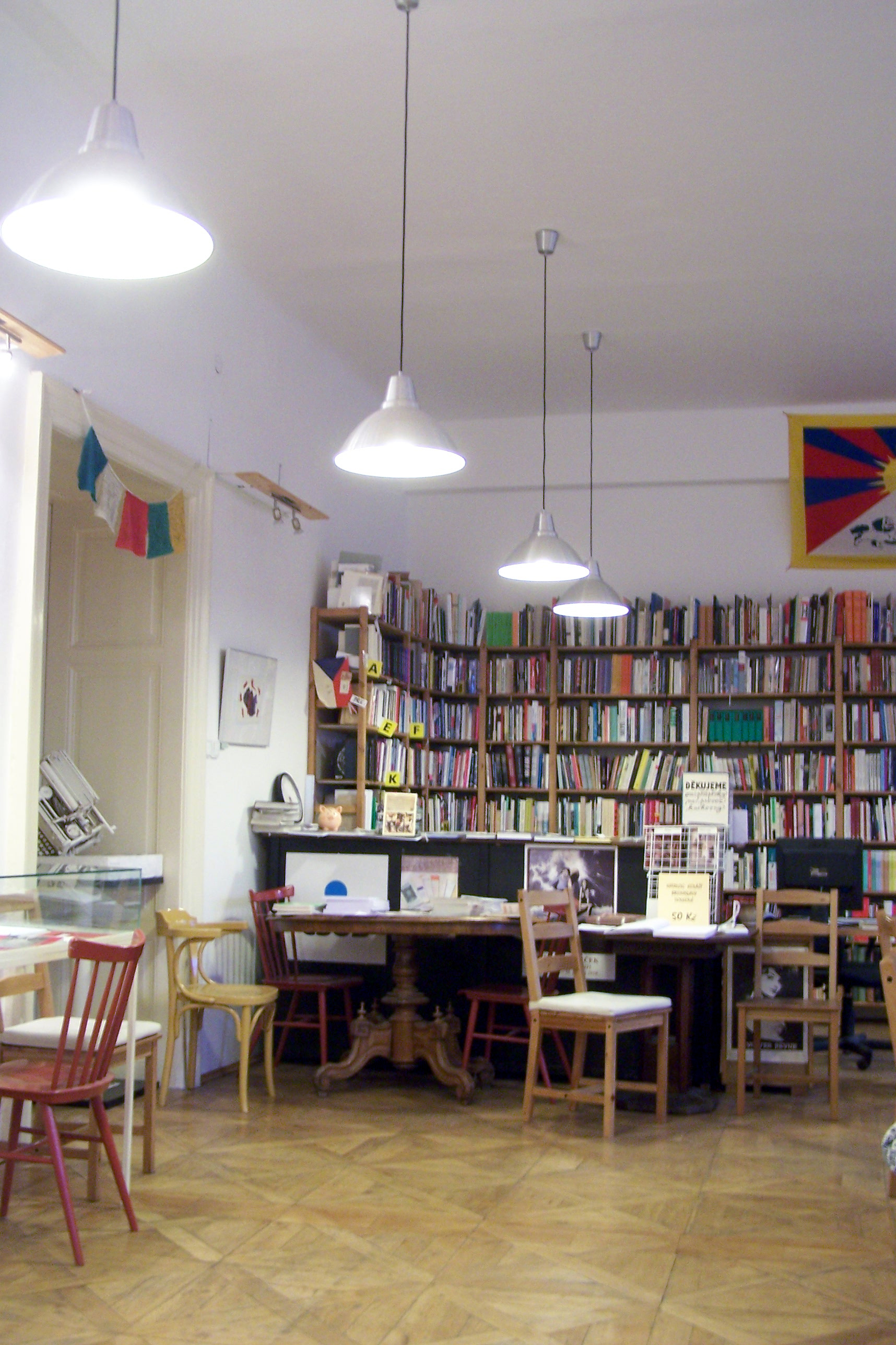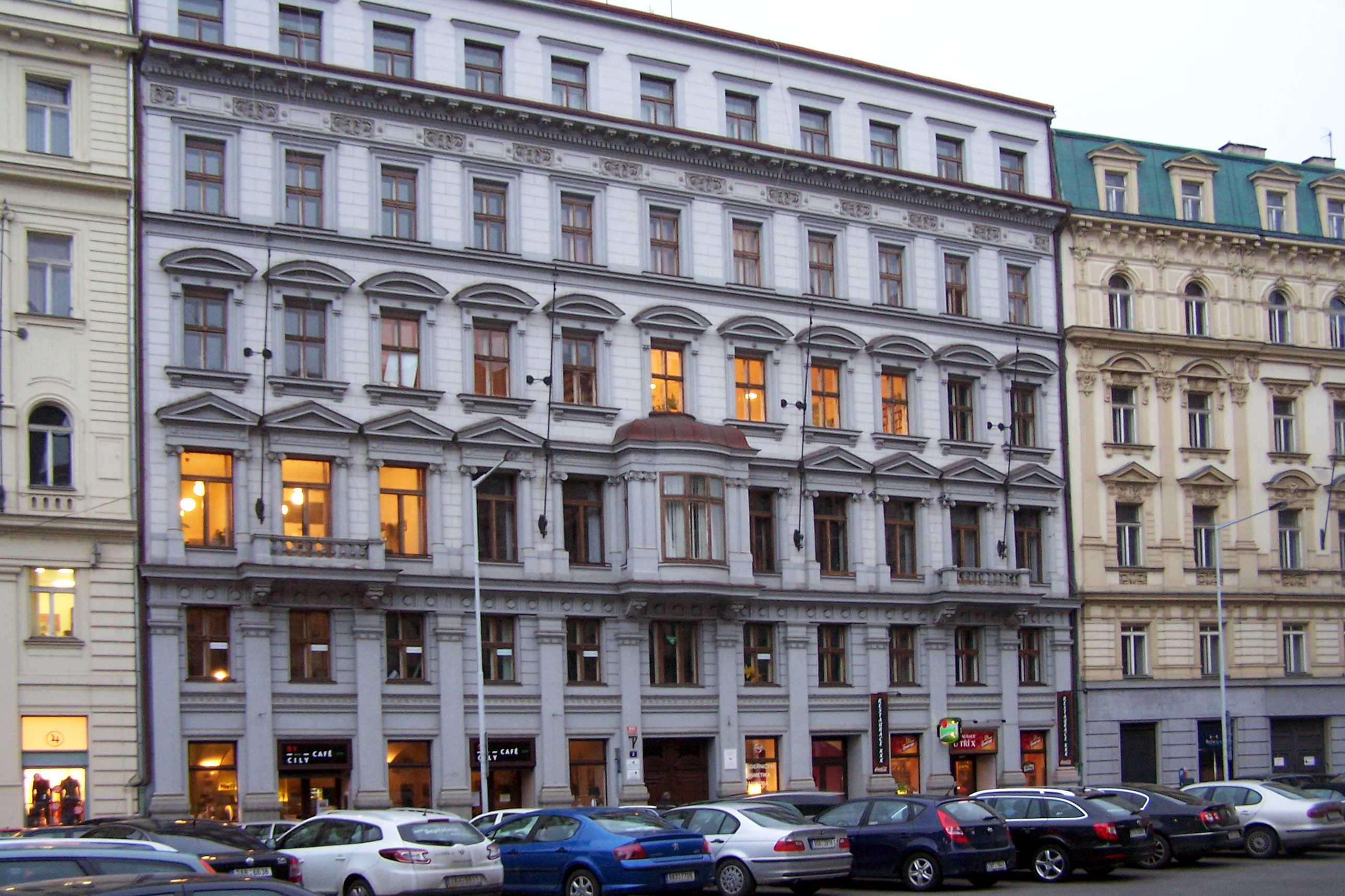The Libri Prohibiti – the library of “prohibited books” – was opened in 1990. The foundation of the Libri Prohibiti was initiated by Jiří Gruntorád, pre-1989 publisher and collector of samizdat literature and signatory of the Charter 77, who had been twice imprisoned because of his samizdat activities. Gruntorád wanted to collect in one place exile and samizdat literature and to make it accessible to the public in order to help clarifying Czechoslovak recent history. According to him, the library should serve as a “message about past times,” and show how the communist regime in Czechoslovakia functioned. Nowadays, the library’s entire collection consists of about 40 500 library units and more than 3 400 periodicals in the areas of literature, literary science, history, political science, philosophy, theology, sociology, culture and politics, the field of human rights, international relations and others. Apart from samizdat and exile monographs and periodicals, the library also focuses on collecting documents concerning violations of human and civil rights in former Czechoslovakia and the entire Soviet bloc. This is why the collection The Czechoslovak Students’ Movement of the 1960s Collection (The Ivan Dejmal Collection) is also part of the Libri Prohibiti.
Ivan Dejmal (1946–2008) was an important Czechoslovak student activist in the 1960s and a representative of the Movement of Revolutionary Youth. He was active at the University of Agriculture in Prague where he studied at the Agronomic Faculty from 1965–1970. He was lead activist of the Independent Students’ Organization at this university and represented it also at the Prague Youth Parliament and the Union of University Students. He also participated in activities with the Movement of Revolutionary Youth, for which he was arrested in early 1970 and sentenced to unconditional imprisonment for two years.
Ivan Dejmal kept materials related to his activities in the students’ movement. He not only made a collection of his own documents (handwritten notes or drafts of his texts) but also of working documents and parts of archives of the Independent Students‘ Organization containing, among others, also the materials of the Prague Youth Parliament and of the Union of University Students. Parts of the Czechoslovak Youth Union’s University Council archive also became part of the Ivan Dejmal collection. After the occupation of Czechoslovakia in August 1968, Ivan Dejmal and Jiří Müller took these papers from the seat of the Czechoslovak Youth Union and later on Ivan Dejmal kept documents concerning the University of Agriculture in Prague.
Ivan Dejmal split his collection of documents into several parts after the August 1968 occupation and in fearing it would be confiscated, he hid the documents at his friends’ homes who successively hid them in two places. Parts of the collection were damaged by water but they mostly remained legible. Ivan Dejmal reclaimed the collection in 1990, and in 1998 and 2000 he gave it to the Libri Prohibiti Library where it has been stored until now. In 2001 the collection was organised by historian Jaroslav Pažout within the European Union EIDHR grant.
There are not many sources kept about the students’ movements in Czechoslovakia in the 1960s and most of them are stored in unorganised collections that are difficult to access. That is why the Ivan Dejmal Collection is a very important and valuable testimony about the oppositional activities of students in Czechoslovakia in the mentioned period including the famous “year of student-led revolts” 1968.
The Libri Prohibiti Library, where the Ivan Dejmal Collection is now stored, does not only make books and magazines accessible to the public, but it also organises various activities such as exhibitions (focusing on exile and samizdat visual artists, photographers and other topics) or literary evenings (dedicated mostly to samizdat and exile authors). The library also hosts an annual award ceremony by the PANT Civic Society which gives the Jaromír Šavrda Prize for Testimonial about the Totality.
The Libri Prohibiti has also participated in the creation of many publications, films (mainly documentaries) and exhibitions; it cooperates with radio stations, theatres, and several websites.


